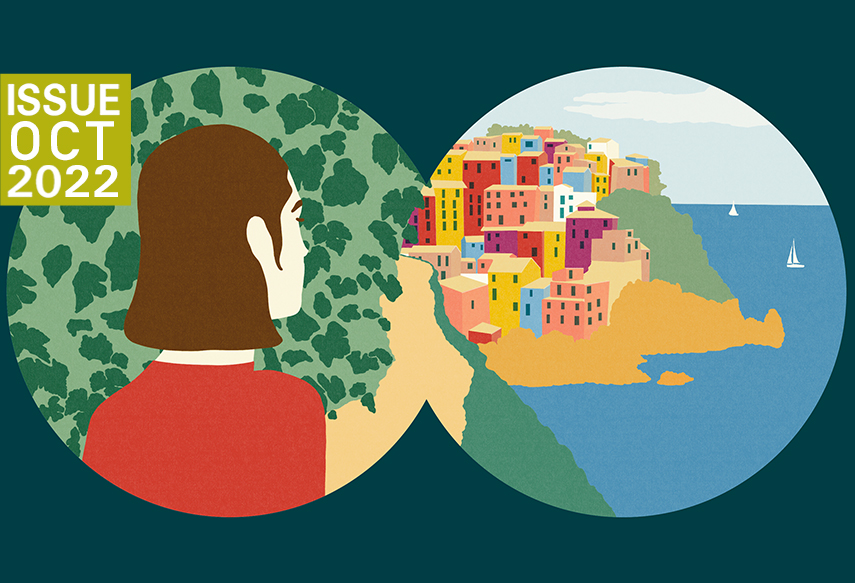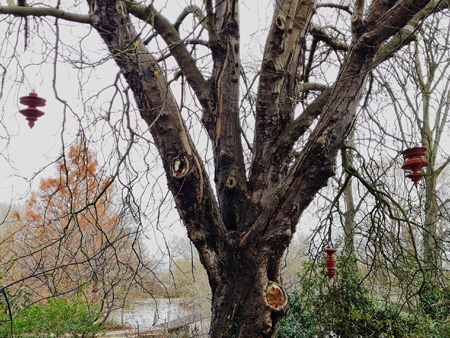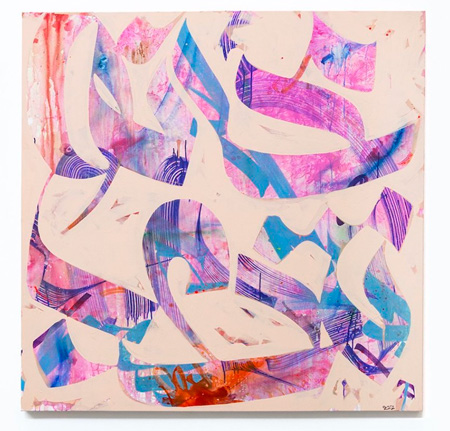- Featuring
- János Háy
- Aram Pachyan Montserrat Roig
- Galina Itskovich
- Kyung-Sook Shin Abdulrahman Naanseh and Sergey Katran
There’s an interesting point of agreement you’ll find if you peruse funeral speeches and self-help books: both contend, in their own ways and for their own reasons, that we must live life “well”—to the full—if we’re to have lived at all. Cringe at the “bucket list” of it all, but when death is close, we all want things that reassure us we are (or have been) fully alive. But what happens when simply being can no longer be taken for granted because our horizons have been narrowed by disease or prejudice?
Our Fall 2022 edition is a study of “Half-Lives”; new works from 32 countries and 19 languages confront life as it shouldn’t be: stunted, degraded, perversely foreshortened—in short, half-lived. Its centerpiece is the Armenian Special Feature, generously sponsored by the Calouste Gulbenkian Foundation and co-curated by our editor-at-large for Armenia, Kristina Tatarian, and myself, under the aegis of which we are proud to present stunning new translations of emerging authors such as Aram Pachyan, last year’s winner of the EU Prize for Literature—Armenia’s first recipient!—alongside more established voices like Narine Abgaryan, Krikor Beledian, and Hrant Matevossian. Inescapably harrowing because of their historical contexts, many of these works set the tone for the rest of the issue—including a pair of highlights comprising entries from the recent diary of the Ukrainian psychotherapist Galina Itskovich—written at speed and sketching the horrors of war—and a spotlight on Ukraine-born artist Sergey Katran, who struggled with art-making in the face of the Russian invasion. In Hungarian playwright János Háy’s devastating drama, on the other hand, war’s toll is on the wives and children left behind, for whom “no amount of waiting can bring [their husbands or fathers] back.” Elsewhere, Claire Mullen chats to Emma Ramadan about the joy of translating from the archive, past contributor Anton Hur brings us a new short story by 2012 Man Asia Literary Prize recipient Kyung-Sook Shin, and Grant Schutzman delivers our first work from Mozambique in the form of moving poetry by Álvaro Fausto Taruma. All of this is illustrated by our amazingly talented guest artist, the London-born creative Louise Bassou.
On the heels of Roe being overturned—with implications for the rest of the world, our editors have also responded by centering one half of the human condition in this issue. Pregnancy is the subject of Lusine Kharatyan’s keenly observed #America_place Pregnant and S. Vijayalakshmi’s intimately recounted Just Like a Womb. Growing up (a “difficult art” according to a very wise Montserrat Roig in this issue’s inspiring Brave New World Literature Feature), the women in these pieces are made to feel less than human in contradictory ways, shamed for the developing bodies in which they are trapped (Rosabetty Muñoz) while becoming objects of unwanted desire at the same time (Eszter T. Molnár). In Mexico, Karen Villeda reminds us that the consequences of being a woman can be fatal, writing that women are not alive, but only “still alive” until they are not. How do women counteract the stunting forces of a hostile world? From the ventriloquism of an Abuela who talks to herself to ensure that no one else speaks for her in Alejandra Eme Vázquez’s You’ll Leave Your Body Behind to the adoption of a third language by Jhumpa Lahiri to develop her own linguaggio, as revealed in Translating Myself and Others reviewed by Caterina Domeneghini, giving voice to female experience, as we endeavor to do in this issue, is one shared mode of resistance.
Wrapping up our twelfth year of work in world literature with this issue, I’m struck by how different the landscape looks now—compared to when we first burst onto the scene in 2011 (if you haven’t already read the story of how we came about, I invite you to check it out here). As Emma Ramadan says in her interview, “The role of the translator has become more valued, more respected, and more visible.” Just as importantly, translators of color—such as Anton Hur, who in 2016 debuted as a literary translator in our very pages and this year received not one but two nominations for the International Booker Prize—are finally being celebrated, perhaps in part due to the essays we have carried (Gitanjali Patel and Nariman Youssef’s 2021 “All the Violence It May Carry on its Back” comes to mind). On the other side of the Atlantic, last year’s US National Book Award for Translated Literature went to Elisa Shua Dusapin and Aneesa Abbas Higgins’s Winter in Sokcho—publication of which we directly facilitated, according to Higgins herself in an interview earlier this year. Not only has our work impacted translators, at least one prominent member of the literary community, Aron Aji—former president of the American Literary Translators Association—cites “ the Asymptote effect” as “one of the key factors contributing to the ever-growing reception of international literature in translation.” Though our eighteen-month partnership with The Guardian ended in 2017, Translation Tuesdays remains the highest-profile weekly showcase of new translations in the anglophone world.
It bears repeating that we have done all of this on zero ongoing institutional funding and zero emergency relief grants because, unlike most other English literary journals, Asymptote is incorporated outside of the US and the UK—ipso facto, we do not qualify for their many grants. (A deep-pocketed country, Singapore does not consider literary editing a fundable activity. This is not for lack of trying on our part either, as my 2020 letter to Rosa Daniel, CEO of Singapore’s National Arts Council, shows.) Yet, despite this dire situation, we are still being attacked for not being able to pay translators or ourselves in some corners of Twitter, and as recently as last week; one wonders if the real beef is with our outsider status (or my outsider status as an editor of color, even if, or especially because, I’m the only full-time staff member working more than forty hours each week behind the scenes), an impression only cemented by Deep Vellum’s recent call for nominations to a Best Literary Translations anthology debuting in 2024, welcoming submissions from only “US or US-affiliated literary journal[s].” One has to ask: What is the effect of all this policing along national lines on something as purportedly global as “world literature”? Is the only acceptable otherness one that is mediated through an American lens?
To read the world and read it more fully is itself a recipe for a fuller existence. If we’ve made a difference in that regard to your lives, please keep us in mind on #GivingTuesday (which falls this year on November 29—though we gladly welcome your generous donations any time of the year!). Consider extending your engagement as a literary citizen to outsider literary journals like Asymptote, for which support has been low compared to our contributions to the literary scene over the years. The best way to keep us around is by joining us as a masthead or sustaining member from as little as USD5 a month. Our precarious future is in your hands.
—Lee Yew Leong, Editor-in-Chief
Editorial Team for Issue October 2022
Editor-in-Chief: Lee Yew Leong (Taiwan/Singapore)
Assistant Managing Editors: Daljinder Johal (UK/India), Marina Dora Martino (Italy), Janet Phillips (UK/Australia), Laurel Taylor (USA), and Michal Zechariah (USA)
Section Editors:
Lee Yew Leong (Taiwan/Singapore)
Barbara Halla (Albania)
Caridad Svich (USA/UK)
Ian Ross Singleton (USA)
Editors of Special Feature on Armenian Literature: Kristina Tatarian (Armenia) and Lee Yew Leong (Taiwan/Singapore)
Senior Assistant Editor: Alex Tan (Singapore)
Assistant Editors: Alyea Canada (USA), Sabrina Greene (USA), Shawn Hoo (Singapore), Gabriela Lemos (USA), M.L. Martin (Canada), Matt Turner (USA), Maya Nguen (USA), Megan Sungyoon (South Korea), Rachel Landau (USA), Rachel Rankin (UK), and Lin Chia-Wei (Taiwan)
Assistant Interview Editor: Rose Bialer (USA)
Contributing Editors: Ellen Elias-Bursac (USA), Aamer Hussein (UK), Sim Yee Chiang (Singapore), Dylan Suher (USA), and Adrian West (USA)
Translation Tuesdays Editor: Shawn Hoo (Singapore)
Art Director: Lee Yew Leong (Taiwan/Singapore)
Director, Educational Arm: Kent Kosack (USA)
Editor-at-large, Argentina: Josefina Massot
Editor-at-large, Croatia: Kristina Gadze
Editors-at-large, Guatemala: José García and Rubén Lopéz
Editor-at-large, El Salvador: Nestor Gomez
Editors-at-large, Hong Kong: Jacqueline Leung and Charlie Ng Chak-Kwan
Editors-at-large, India: Areeb Ahmad and Suhasini Patni
Editor-at-large, Kenya: Wambua Muindi
Editor-at-large, Macedonia: Sofija Popovska
Editor-at-large, Mexico: Alan Mendoza Sosa
Editor-at-large, Palestine: Carol Khoury
Editor-at-large, Philippines: Alton Melvar M. Dapanas
Editor-at-large, Puerto Rico: Cristina Perez
Editor-at-large, Romania and Moldova: MARGENTO
Editor-at-large, Slovakia: Julia Sherwood
Editor-at-large, Uzbekistan: Filip Noubel
Editor-at-large, Vietnamese Diaspora: Thuy Dinh
Masthead for Issue October 2022
Fiction, Poetry, Visual, Brave New World Literature Feature, and Interview: Lee Yew Leong
Nonfiction: Ian Ross Singleton
Drama: Caridad Svich
Criticism: Barbara Halla
Armenian Literature Feature: Kristina Tatarian and Lee Yew Leong
Illustrations and Cover: Louise Bassou
Assistant Managing Editor (supervising issue production): Janet Phillips
Assistant Managing Editors (supervising Assistant Editors): Laurel Taylor and Marina Martino
Assistant Managing Editors (supervising Editors-at-large): Daljinder Johal and Michal Zechariah
Chief Executive Assistant: Rachel Farmer
Senior Executive Assistants: Angela Bulgari, Julie Shi, and Anna Thyregod Wilcks
Executive Assistants: Chinmay Rastogi and Iona Tait
Blog Editors: Erica Eisen, Darren Huang, and Xiao Yue Shan
Assistant Blog Editor: Bella Creel
Newsletter Editor: Amaryllis Gacioppo
Art Director: Lee Yew Leong
Guest Artist Liaison: Berny Tan
Senior Copy Editors: Maggie Wang, Rachel Stanyon, with assistance from Janet Phillips and George Macbeth
Copy Editors: Andrea Blatz, Bella Bosworth, Cecilia Weddell, Ellen Sprague, Mia Manns, Lily Parmar, Matilde Ribeiro, and Liam Sprod
Technical Manager: József Szabó
Director of Outreach: Georgina Fooks
English Social Media: Annilee Newton, Livia Djelani, Jayasri Prasanna, Ruwa Alhayek, and Samantha Mateo with assistance from Olivia Roslansky
Spanish Social Media: Sergio Serrano and Madeline Robinson
French Social Media: Filip Noubel
Graphic Designer: Michael Laungjessadakun
Digital Editors: Bridget Peak and Matthew Redman
Marketing Manager: Samantha Seifert
Business Developer: Daniel Naman
Director, Educational Arm: Kent Kosack
Educational Arm Assistants: Irmak Ertuna, Mary Hillis, Thirangie Jayatilake, and Anna Rumsby
Book Club Manager: Carol Khoury
Asymptote would like to acknowledge the support especially of the Calouste Gulbenkian Foundation as well as Shogher Margossian, Nathalie Eden Jornales, Lisa Renee Kuerbis, Kelsi Vanada, and Samuel Liangxing Luo.
For their generous donations this past quarter, our heartfelt thanks go too to Daniel Hahn, Eric Fishman, Ferran Pericas Cladera, Geoffrey Howes, Il Park, Jane Kirby, Jeffrey Boyle, Jenna Colozza, Joachim Redner, Katarzyna Bartoszynska, Lara Norgaard, Lynn O'Neal, Marjolijn de Jager, Mark Cohen, Martin Ingebrigtsen, Matthew Mazowita, Monty Reid, Nhi Ta Huong, Pavlos Stavropoulos, Phuong Anh, Sarah Glenski, Theresa Henderson, Thomas Carroll, Velina Manolova, and Xiangxiu Meng.
We are overjoyed to welcome new sustaining members Claire Hegarty, Elena Barcia, and Samuel Liangxing Luo.



